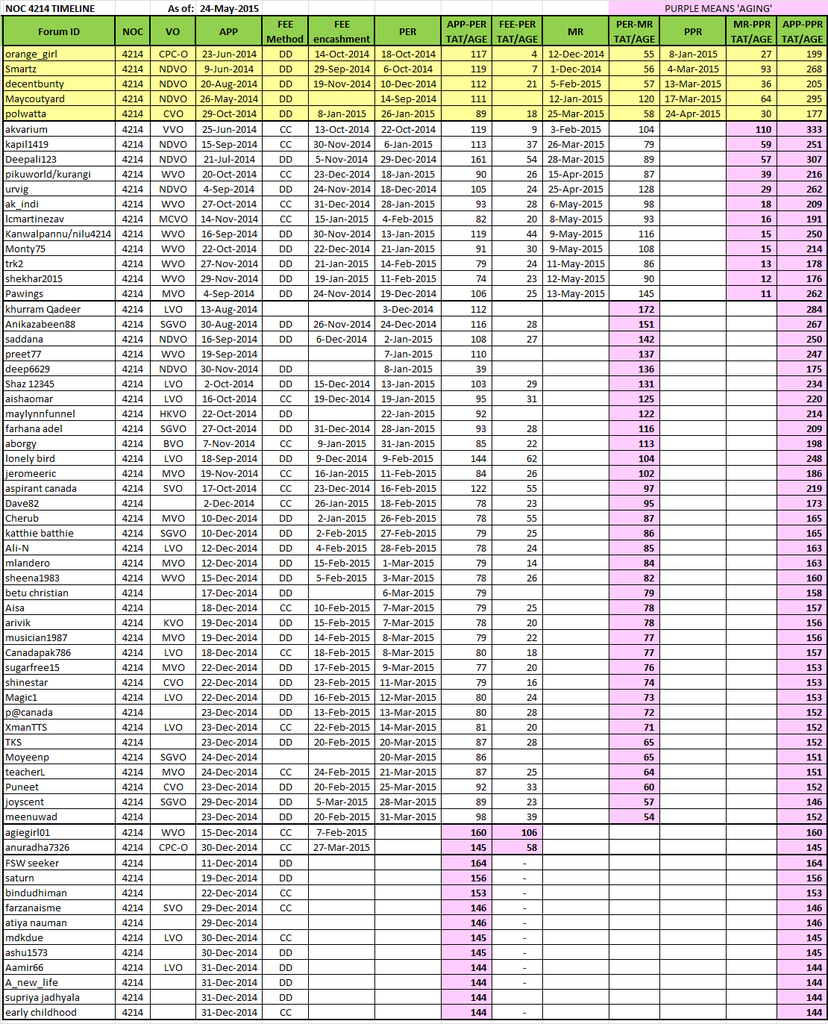sheena1983 said:
Today I got an email from VO, stating that I am not eligible for PR as my employment (4214) and my education doesn't match. Right now am working with call center, but before joining call center I was working as nursery teacher in India.
Also, they mentioned that there is no evidence of form 16 or income tax return & salary transferred to bank for 4214.
Lots of small nursery schools in India Pay by cash or Cheque, and that time I never bothered about income tax because salary was very low & that was also the reason I moved to call center for higher package.
Though they have written in their email that they're giving me last opportunity of 30 days to explain & provide supporting documents.
Can anyone in this forum help me......feeling very low, depressed, demotivated......feeling like crying.... :-\
Hi Sheena,
First and the foremost thing is not to panic! VO needs evidence, thats it!
Below are a few things you should look into:
a) Documents evidencing your association with the school:
1. Appointment Letter/Contract
2. Confirmation Letter (if any)
3. Payslips (if paid in Cash, copies of cash vouchers)
4. Any certificate / increment letter / recognition letter / promotion letter, etc from the school
5. Any training certificate (in-house or otherwise)
6. Photographs of yourself with with students, teachers, doing activity, school event, etc having a schools backdrop or classroom
7. Your resignation letter addressed to school (copy bearing receipt stamp)
8. Your final experience letter issued when you were leaving the school
9. Any other information which shows your association with the school
10. You may consider sending reference letters from your ex-coworkers as well, if need be
b) Documents evidencing that your school exists:
1. Photos of your school, specially front elevation (a closeup and a distant photo showing physical presence)
2. Any newsletter or literature like admission form, circular to parents, etc. (printed newsletter hardcopy is very important if you get couple of them)
3. School's registration certificate (or at least school's registration number). The School must be registered with any regulating body.
4. Presence of your school on internet, like website, or school's online ad, or school's name enlisted in the list of schools in india, or in the particular state/city
5. Facebook page of the school, if any
6. List of faculty members / directors if any, etc.
7. LinkedIn profile of the principal, co-teachers evidencing the school name on their profile
c) Your income tax and bank statement:
1. detailed letter informing that your annual income was below the minimum income to pay income tax. Moreover, the salary was disbursed in cash so no bank account showing monthly salary deposits.
2. Tax regime details / tax slabs for previous years (you will get the information from internet, its public information)
3. If possible, a letter from the school saying that the salary was paid in cash and no payslips are being issued by the school along with copies of debit vouchers duly stamped by the school evidencing salary disbursement through cash vouchers. If they also mention that no tax was deducted at source, this will help too.
The above lists (a,b,c) are not exhaustive, you may add anything that deem appropriate to your case.
d) Education mismatching profession:
This is a very sensitive issue, if you check education requirement on hrsdc site for 4214, it says:
Early childhood educators
Completion of a two- to four-year college program in early childhood education
or
A bachelor's degree in child development is required.
Licensing by a provincial or territorial association for early childhood educators (ECE) is usually required.
Early childhood educator assistants
Completion of secondary school is required.
Experience in child care is required.
Completion of an early childhood education assistant certificate program or post-secondary courses in early childhood education may be required.
Licensing by a provincial or territorial association for early childhood educators (ECE) may be required.
Now the million dollar question is, have you applied as an 'Educator' or an 'Assistant'? If applied as an Educator, you should have the relevant educational background. License from Province/ territory is not mandatory in India so no worries but a two- to four-year college program in early childhood education or a bachelor's degree in child development is mandatory. If applied as an 'Assistant' no specialized educational background is required.
One of our colleagues 'urvig' faced more or less the same issue (barring educational background). They were also given 30 days deadline. They however are now done with MR and waiting for PPR. You may send them a PM for assistance. The person is also a member of 4214 whatsapp group. I will request them to contact you as well.
Last but not the least, can you please share the exact text of the mail you received. This will help me to understand the exact needs / requirements better.
Keep the faith and act quickly. You will sail through.
All the best,
Ali



